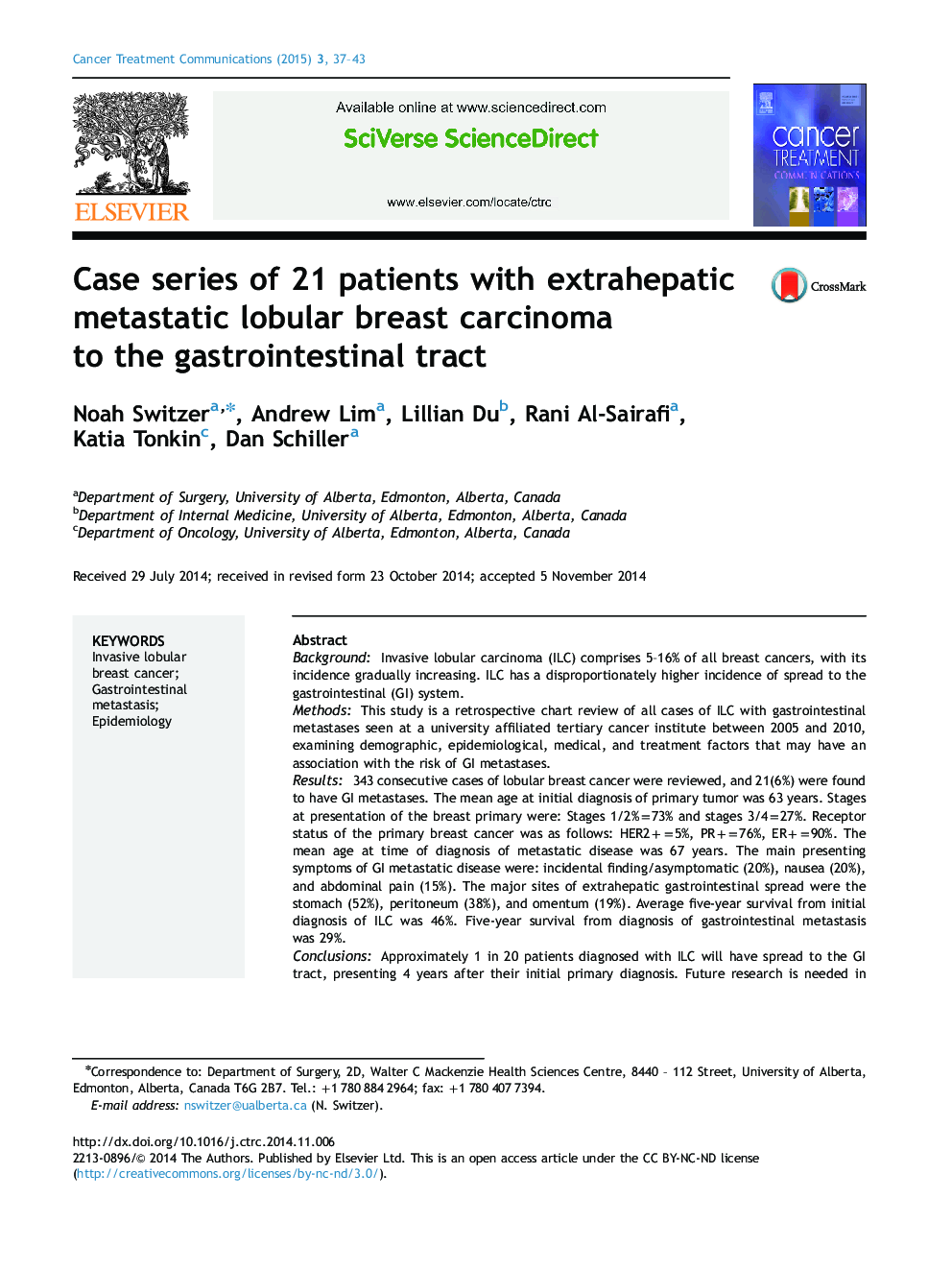| Article ID | Journal | Published Year | Pages | File Type |
|---|---|---|---|---|
| 3979682 | Cancer Treatment Communications | 2015 | 7 Pages |
BackgroundInvasive lobular carcinoma (ILC) comprises 5–16% of all breast cancers, with its incidence gradually increasing. ILC has a disproportionately higher incidence of spread to the gastrointestinal (GI) system.MethodsThis study is a retrospective chart review of all cases of ILC with gastrointestinal metastases seen at a university affiliated tertiary cancer institute between 2005 and 2010, examining demographic, epidemiological, medical, and treatment factors that may have an association with the risk of GI metastases.Results343 consecutive cases of lobular breast cancer were reviewed, and 21(6%) were found to have GI metastases. The mean age at initial diagnosis of primary tumor was 63 years. Stages at presentation of the breast primary were: Stages 1/2%=73% and stages 3/4=27%. Receptor status of the primary breast cancer was as follows: HER2+=5%, PR+=76%, ER+=90%. The mean age at time of diagnosis of metastatic disease was 67 years. The main presenting symptoms of GI metastatic disease were: incidental finding/asymptomatic (20%), nausea (20%), and abdominal pain (15%). The major sites of extrahepatic gastrointestinal spread were the stomach (52%), peritoneum (38%), and omentum (19%). Average five-year survival from initial diagnosis of ILC was 46%. Five-year survival from diagnosis of gastrointestinal metastasis was 29%.ConclusionsApproximately 1 in 20 patients diagnosed with ILC will have spread to the GI tract, presenting 4 years after their initial primary diagnosis. Future research is needed in developing treatment regimens for these patients, as the 5-year survival is only approximately 1 in 4.
